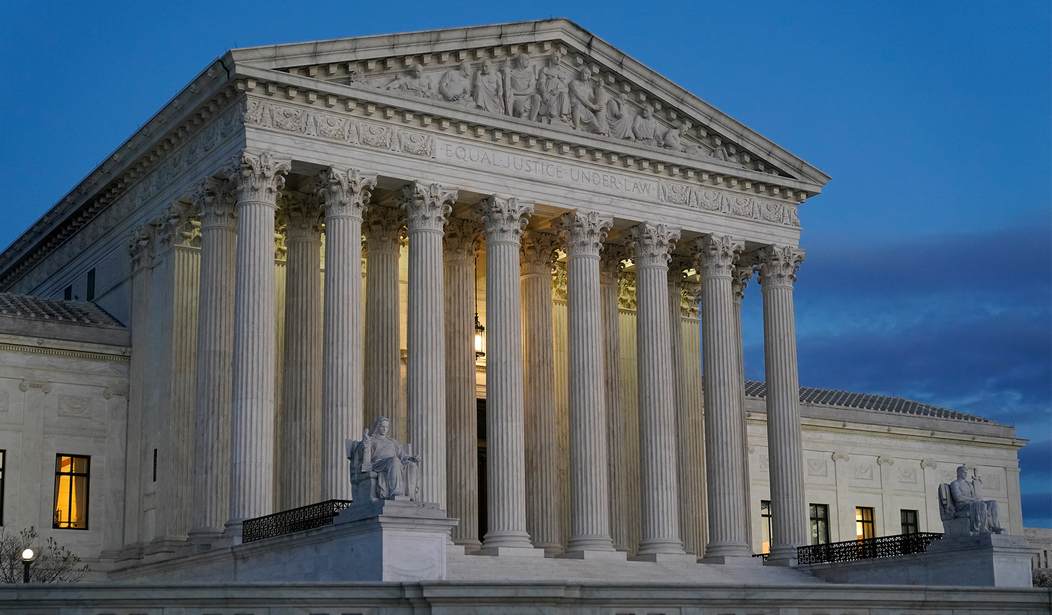The Supreme Court has struck another blow in favor of liberty. On Friday, it handed down a series of rulings, one of which has caused a collective conniption among those on the authoritarian left, who love forcing their ideology on everyone else. Because of the court’s decision in 303 Creative LLC v. Elenis, it will be harder for leftists to force creative businesses to support causes that do not align with their religious beliefs.
In a 6-3 decision, the Supreme Court ruled in favor of a Christian web designer, Lorie Smith from Colorado, who refused to provide graphic design services for same-sex weddings. The court determined that Smith’s refusal to design websites for gay couples was protected under the First Amendment’s free speech rights, and she could not be penalized under Colorado’s antidiscrimination law.
The ruling has the potential to allow other business owners in 29 states to evade punishment under LGBTQ rights protection laws. Justice Neil Gorsuch, writing for the court, emphasized the importance of freedom of thought and speech. However, dissenting Justice Sonia Sotomayor criticized the ruling, characterizing it as a setback for the movement for equality for gender and sexual minorities. This case echoes the 2018 ruling in favor of a Christian baker who refused to create a wedding cake for a same-sex couple.
Needless to say, folks on the left are already complaining about the ruling, claiming it will result in more discrimination against LGBTQ folks:
LGBTQ+ legal experts said the ruling does not grant businesses a widespread license to turn away LGBTQ+ couples. Instead, it creates a carve-out for business owners creating and selling art to reject specific commissions against their conscience.
Jenny Pizer, chief legal officer at Lambda Legal, the nation’s largest LGBTQ+ legal group, said that in this case, the court viewed Smith as a fine artist, similar to an oil painter. A sketch artist working at a popular pier likely would not be included in the carve-out.
LGBTQ+ advocates say the ruling, while limited, marks a significant loss of anti-discrimination protection and will invite further eroding of civil rights law.
“The litigant aiming to blow a big hole in civil rights law has prevailed, and she’s prevailed with a very narrow win, unlikely to have anything like the results that she was seeking,” Pizer said. “But nonetheless, this extreme reactionary court majority predictably is handing victory to the litigant who was seeking to damage civil rights laws to obtain a license to discriminate.”
The decision has ignited a nationwide debate on the balance between free speech and LGBTQ rights. While the ruling is being hailed as a victory for free speech and religious freedom, it is crucial to emphasize that, despite what folks like Pizer say, it does not grant businesses a sweeping right to discriminate against members of the LGBTQ community.
The Supreme Court’s decision in favor of Lorie Smith underscores the importance of upholding free speech rights and religious freedom. As a creative professional, Smith argued that being compelled to design websites for same-sex weddings would violate her deeply held religious beliefs. The court agreed, recognizing her right to refuse to endorse messages that she disagrees with, thereby safeguarding her freedom of expression and religious practice. This ruling reaffirms the principle that individuals should not be coerced into participating in events or creating art that conflicts with their sincerely held beliefs.
It is essential to clarify that the Supreme Court’s decision does not grant businesses a broad license to discriminate against LGBTQ individuals. The ruling is specific to the context of creative professionals and their freedom of expression.
The court’s decision is not an endorsement of discrimination; rather, it is a recognition that certain creative services, such as designing websites, involve artistic expression and are protected under the First Amendment. Nobody should be allowed to use the force of the state to compel someone to use their creative talents for something that violates their deeply held beliefs. This ruling is a significant win for liberty.














